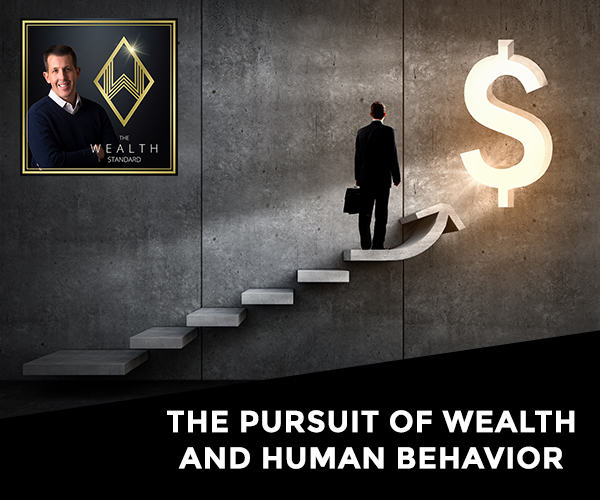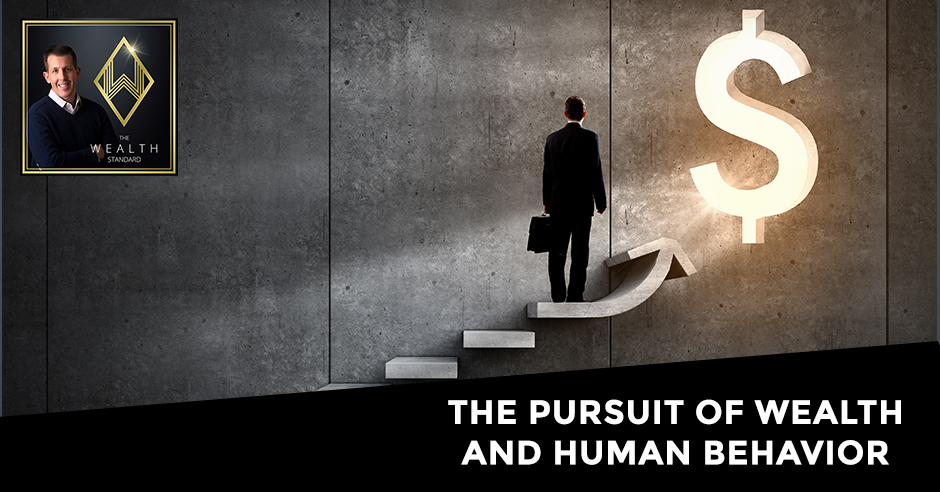Strategic Ways To Change Our Habits And Belief Systems with Connor Boyack
Podcast: Play in new window | Download
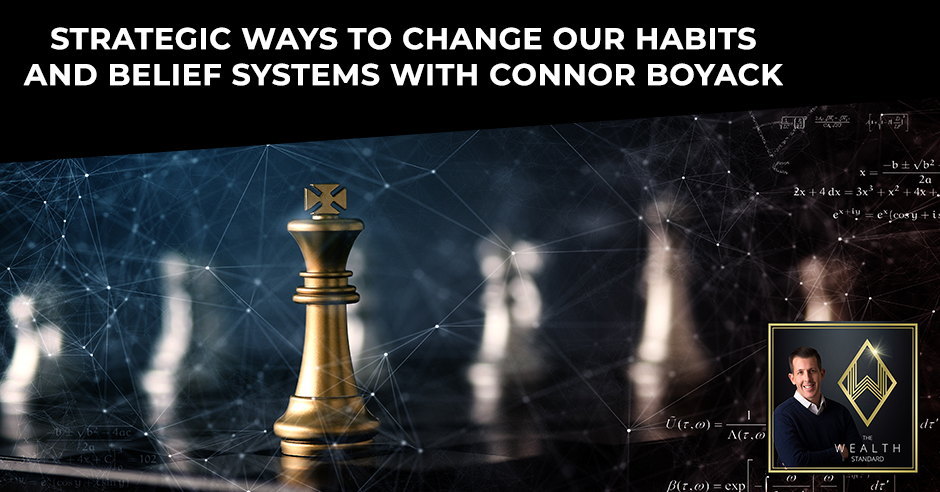
As adults, we have developed a threshold over the years that makes it more challenging to make adjustments in our habits. Whether we realize it or not, we are, on a daily basis, influencing our children and what they believe about themselves. However, this incredibly disruptive time has got us shaking out of our routines and patterns enough for us to change our habits and belief systems. On today’s show, Patrick Donohoe brings back Connor Boyack to talk about strategic ways to change our habits and belief systems, especially concerning our health and finance, love and relationships, freedom and liberty, and other ideas. Connor is the author of the Tuttle Twins book series, which has impacted how parents view the world.
—
Watch the episode here:
Listen to the podcast here:
Strategic Ways To Change Our Habits And Belief Systems with Connor Boyack
Thank you for reading part two of my interview with Connor Boyack. I intentionally took a week to think about what I would say in this introduction going into some good points that Connor and I go through as it relates to kids, kids’ influence and specifically, parents and how they convey their belief systems, their physical habits in part to their kids. I came across a quote by Aristotle. It’s one that everyone repeats quite often, but it’s still profound. It’s, “We are what we repeatedly do. Excellence is not an act, but a habit.” I thought a lot about habits. I believe that habits are mostly carnal. Most people, if they could snap their fingers and change a habit, they would, but it’s essentially something physical.
As I look at my experiences mostly with Tony Robbins events, it’s like our body craves systems and habits, because it wants to conserve energy. It wants to spend energy in the most meaningful places. It happens on a subconscious level. At the same time, there’s an unintended piece, which is when there’s a habit that we don’t like, we find it challenging to overcome and replace with a new habit. A perfect example is health. Most people want to be healthier and we know what to do. All the education information exists and that relates to business, finance and to anything.
What it causes us is to stay in the same place and not make those changes because it’s carnal and embedded in us. Typically, it’s a function of change. A change of a significant habit is a function of drama or trauma. Drama is like your husband or wife says, “I want a divorce,” or you come home and all their stuff is gone or you get fired from a job or you are one-upped by a colleague. It also is a trauma. A car accident, a heart attack or something physical, which shakes us. It disrupts the patterns and habits that we have and put us in this position where staying the same is more painful, more strain is there than making the appropriate and necessary changes.
That strain is less. Those typically do not happen strategically. They happen by circumstance and happenstance. At the same time, my experience has been, if you truly want to change a habit, there is a strategic way to do it, but most people don’t realize that it has to be very psychological and very physical. I’m going to invite everybody again. I invited everybody to one of Tony Robbins’ events, regardless of your opinion of him, it’s a very crazy, physical experience, but it’s intentional. What it does is it helps you and there is an Aristotle quote which it allows you to give up your past to you and sacrifice it in gain or in part to get closer to who you’re meant to be.
Those events allow you to think deeply, but also have a physical experience in which you can process what you want, what you’re currently doing and what you need to do. It helps disrupt that physical sense, your physical body so that you are in the prime state to be able to make the appropriate changes. It’s virtual. It’s in November 2020. There were almost 30,000 people for the first one. He did it virtually. He did a business one that I talked about a few episodes back. The Unleash the Power Within which is the event that I invited all of you as my audience, it’s going to be virtual in November 2020.
My experience is that with adults, we’re somewhat masochistic, we have a threshold of pain and strain. We’ve developed that over the years and that makes it a little bit more challenging to make adjustments in our own habits. However, when we make the connection between our habits, our belief systems and our children, something changes. Anything that compromises a child is something that in society does not accept whatsoever. An adult can be assaulted or beat up or hurt. There is a near as much response to that as if it were a child. That goes, subconsciously or unconsciously. What that means is you could do physical harm, but also when you realize that you are on a daily basis influencing your child, what they believe about themselves, what they believe about their life, what they believe about what’s possible for them.
It’s incredible that these subtle things over the course of time form those belief systems and habits in them. I look at 2020 being an incredibly disruptive time and it’s shaking us out of our routines. We had a massive wind storm in Utah that blew these huge trees down like 50 or 60 or 100 years old trees with huge roots. It destroyed everything. It knocked down a bunch of stuff at our house. We’ve been up at our little cabin in the mountains roughing it. As if 2020 wasn’t disruptive enough, we’ve had an earthquake, COVID-19 stuff and this massive hurricane-type wind impact on us.
We’re being shaken. We’re being disrupted with these pattern interrupts. They allow us to think differently about life. Now is a season where our kids are going back to school and we are starting a new year. I believe that taking back control over where our influence is over our children, is something that we can do and oftentimes, that right there is enough for us to change our own habits, belief systems about health, finance, love and relationships, freedom, liberty and other ideas.
Staying the same is more painful than making the appropriate and necessary changes. Click To TweetWe are in a swarm of different ideas and opinions. Ultimately, whatever your belief system is or opinions are, I believe that we have stewardship as parents, as grandparents and as leaders. Anyone, family members that have influence over children, I believe we have a stewardship to convey to them the things that we have discovered positively about life. I hope you gain a lot from this interview. I hope you take advantage of some of The Tuttle Twins literature. It’s amazing. Connor also has a digital course. Thanks again and we’ll see you next time for another episode. Until then.
—
This is probably a good transition point because it’s interesting. We’ve done a lot more webinars and trying to talk to people and understand where they’re at and what’s going on, so we can figure out ways to provide value. It was interesting as we’ve looked at all different topics and this is for my other company, but we found an overwhelming difference in the number of people that engaged with content, as it related to their elderly, aging parents and to their children. I find it interesting because I think these are very carnal ways in which we’re reacting to these circumstances. You go through Maslow’s hierarchy of needs and there are other models that explain human behavior and the different tiers and levels.
When it comes to your survival, you’re going to do anything and most of it is not rational. It’s all like instinct, “I have to survive.” Then you get to the upper levels where it’s safety, then to relationships, then to self-interest, then to the more spiritual self-actualized role. Most people aren’t even close to that. They are in those lower levels. You look at what people care about and it’s their parents, family, and children. I look at some studies I’ve read through where it solidifies that a lot of how a person looks at life and forms their belief structures happens before the age of fifteen. It is where they observe or they’re taught directly and they are influenced, whether it’s by their family or peers or community, and that is what they carry out throughout their entire life.
Things and circumstances can change, but for the most part, a lot of their belief structures start there. What I find fascinating about the way in which you’ve approached the principles of liberty, and maybe you can speak to this because we haven’t talked about it before, where the books that you have written are directed toward children. It is about these two, a brother and a sister, twins who have all of these different experiences that highlight a lot of the principles of prosperity that you believe in and principles of liberty, but the parental learning as a result of that is something you’ve spoken to before. Maybe talk about the difference that those books have made. I don’t know if you did this by design, or it was unintentional where you made your way into family’s lives based on promoting children’s education and teaching principles, but impacted the way in which parents view the world.
That was totally unintentional. The parents became a secondary market after we started this project. Whereas like, “We’ve stumbled into this opportunity and this value-add,” I think for a lot of parents. Our books are called The Tuttle Twins books. We’ve got books for kids, for teens. We’re coming out with board books for toddlers and cartoon. There’s a lot of stuff that we’re building. We sold over one million books. We’re in twelve languages. In Brazil, we’re selling books by the thousands. It’s hazing off down there. It’s filling a void. When we started The Tuttle Twins series, the whole goal was we want to teach little kids, younger kids the way the world works, civics, economics, ethics, morality, not from a religious standpoint, but like the golden rule and human behavior and all this kind of stuff. This started because I am a dad and I wanted my young kids to learn this. I couldn’t find anything on Amazon that was already doing it. I’m like, “Here’s the opportunity.”
Many books into the series, it is amazing. Think about dopamine drips. People are watching reality TV or soap operas, and they’re addicted to this. I like being bathed in dopamine from every day getting social media posts and emails from parents either or sometimes both saying, “My kids have learned so much. The conversations we’re having right now are amazing,” and/or, “I’ve learned so much that I never learned in school. Why did I never learn this in school? Where has it been all my life?” Our kids’ books are all based on a classic like Economics in One Lesson by Hazlitt or Human Action by Mises or all these different books. Ninety-nine percent of the adults reading our books would never read one of these original books.
They wouldn’t have the time or interest. They’re often written decades ago or more where the English are denser and we’re not used to that style anymore for better or for worse. These books simplify things and help parents who are stressed and busy sit down with their children and have this shared learning opportunity. Have some discussion questions at the end that they can go over together and then the recollection comes later where they’re in the grocery store and they’re like, “There are 83 kinds of potato chips. Now I understand why.” Specialization, division of labor, spontaneous order, all these kinds of terms where kids through our storytelling books are learning about these things and finding ways to apply them so that they can better understand the way the world works.
As the author, people look at me and like, “You’ve made this thing. It’s been amazing. How will this impact?” With all honesty and truth, I honestly have no idea how we’ve done this. We’re like, “Let’s make some books and we’ll teach them stuff,” but there’s some kind of magic secret sauce that’s dripped into these things. Not of my own volition, where the response has been disproportionately, passionately positive, where even families who don’t agree with our political philosophy initially, or whatever is totally coming to our side of things. They are totally understanding ideas and glomming onto them just because of, I don’t know if it’s the simplicity, maybe it’s Elijah’s beautiful illustrations that are winning the day, whatever it is, we’re having a ball. I honestly feel the anxiety because the way the world is has diverted more of my energy into this project of late. I feel like, “I shouldn’t be sleeping right now. I should be making more content all the time because the demand is so high.”
The perspective that adults have is challenging to change unless there is a major disruptive event. 2020 has changed the way in which people look at life, society, themselves or their family to get what they want for better or for worse. There are circumstances where divorce rates and child abuse have spiked, but at the same time, you do have families becoming stronger. You have people being friendly with their neighbors. There are lots of positive and negative, but at the same time, this solidifies the idea behind the capitalist mentality, where it’s not about being rich and wealthy, it’s about finding ways to take who you are and bring value to the world.
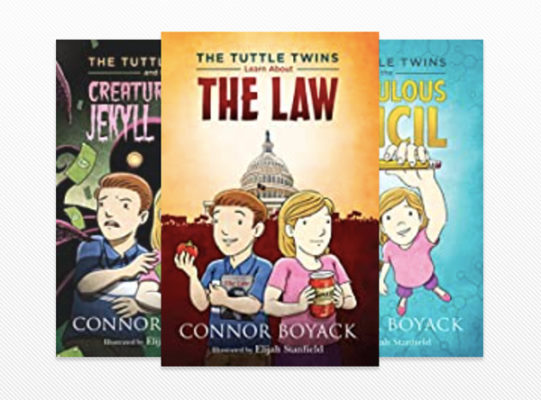
Tuttle Twins book series
That’s where it starts. There’s a lot of experimentation. Sometimes it works. Oftentimes, it doesn’t work. That’s where you’ve written some amazing books previous to The Tuttle Twins, which are good books. Feardom is one of my favorite reads, but yet The Tuttle Twins made an impact where that wasn’t necessarily the original objective. That’s how things work sometimes. Connor, why don’t you give us some case studies? Give us some things that have happened during the summer, during a very volatile time that relates to ways in which families have benefited from reading The Tuttle Twins or consuming some of the other stuff that you have digitally.
In our books, we have our economic curriculum as well. That’s at FreeMarket.TuttleTwins.com. What’s been interesting is many more parents are homeschooling. This has been all over the news and it looks like homeschooling is probably going to triple in the United States, I think it’s where things are landing now that everyone’s heading back to school. We’re seeing if people are going to change their behavior, not just say they might, in response to a poll. From all the data I’ve seen, it appears that we might triple. That’s millions of kids embarking on this new experiment. These families are clamoring like, “What do I do? What do I teach them? What are the resources? What are the curriculums?”
They’re hungry for material trying to figure out what to do. We’ve nearly tripled our sales since the beginning of the shutdown. We’ve had to try to keep up with everything. It’s been a strong demand. With that increase in volume, we’re getting way more social media posts and stories from families. The interesting thing to me is we get a lot of families who say they have a dyslexic child who won’t read any of their books but will read The Tuttle Twins book. I had a parent tell me about their kid who has massive ADHD and this is like the only books they’ll read. I had one dad say his daughter will only read Barbie books, but then she’ll also read The Tuttle Twins books.
I enjoy hearing from parents like that because it’s like testimonials. It’s like going to church and having everyone say, “Hallelujah. God is good,” and all these things. Here, everyone’s sending me emails and saying, “Connor is good. The Tuttle Twins is good.” I need to keep that ego down and be like, “It’s not me. There’s some other magic here.” What’s amazing to me about it all is like, we’re seeing many parents realize that they can’t wait for the schools to do this anymore. I think the collective failure of the freedom-minded people, however, you want to describe that movement or group is that they have delegated to the schools, the responsibility for their children’s education and with those ideas about civics and economics.
If you send your child to a socialist schooling system because the public school system is inherently a socialist system. Everyone pays for the benefits of a few and redistribution of wealth within that system and everything else, not to mention all the collectivists’ things within the school, that permission to go to the bathroom, batching people by age, regimenting your schedule and everyone on the same conveyor belt. There are all these issues for better or for worse and that’s not the same thing. There are teachers in the system who are often extremely well-meaning, but the system itself is structured. If you send your child to such a system, can you expect that they’re going to learn the evils of socialism or collectivism? The downsides, the opposing sides or even a simple exposure.
There’s a pastor whose quote I once read. He said something to the effect of, “Can Christians expect to send their children to Caesar’s schools and not have them return as Romans?” That encapsulates the idea, even from a political side. Can we expect as freedom-minded people who may have concerns with socialism to send your children to the public school system and learn anything other than the fact that government is great, it solves all these problems and there have never been any problems with socialism or anything else.
What we’re seeing is an awakening of so many more families realizing whether it’s because of the school shutdowns or the mask mandates or the economic conditions or simply the authoritarianism that has run rampant with all these executive orders and governors flexing their muscles and doing everything. There’s this awakening of many more families being like, “What happened to America I once knew?” They think about like, “What are kids learning these days? What are my kids being taught about the way things used to be in America or the ideal of America?”
They start to account for the fact that, “My kid’s school doesn’t teach any of that. How can I assume that burden?” It’s that transition from the delegation to the schools, to the assumption of responsibility that we are seeing a ton of parents now have that awakening and be like, “I’ve got to do this myself,” but then naturally like any good parent who’s busy and stressed and doesn’t know everything about everything, they search online or go on a Facebook group and they’re like, “Help. What do I do?” That’s where we try and step in and say, “We’re here to help.”
There are many different resources out there, but ultimately if the environment is the same, then there’s no need to change, but there is a necessity. The disruption is great that people are seeking other alternatives. At the same time, it’s a bitter pill to swallow. Especially, those who have been raised or have sent their kids to the educational system that for the most part, people associate with good. It’s good to be educated. It’s good to go, learn, socialize and being told, “Our school system is Prussian-based and it was originally designed to train the military and factory line workers.” People don’t like hearing that because they are associated with doing something wrong. At the same time, that’s reality. I look at education and how influential it is.
Right now, there is a disruption so great that people are seeking other alternatives to be educated. Click To TweetIt’s that pre-fifteen-year old influence that creates the framework in which we view the world. It’s hard to look at things differently. One of the exercises I did to try to get through to my kids is I walk them through the economics of it where, “You go to school, get a job, graduate from school. Here’s the average college debt, the average mortgage, the average car payment, the average cell phone.” We did all the accounting and all the taxes are taken out and there’s hardly anything leftover and then you go to a graduate degree. Even though the salary is bigger, what that equates to when it comes to lifestyle is a car with leather and another bedroom or two. What that did is they started to be intrigued by, “That’s how? No, that can’t work that way.”
I have two teenagers and a six-year-old. The six-year-old even started to understand it. At the same time, as there is divisiveness when it comes to wealth inequality from an education standpoint, that’s another one of those difficult things to tackle. At the same time, a lot of our clients, readers and the audience have raved about you, your books and they talk about how much it changed their life. It takes that slight paradigm shift, that little seed that opens the door to a new reality and that reality allows you to look at things more critically. It allows you to weigh both sides as opposed to gravitate to the side that seems to align with people that are like you. That’s where I see our society. It’s going into such a horrible direction. At the same time, it’s exciting because typically when you have that much disruption and contention, it’s going to cause people to step back and think and hopefully be awakened to a better perspective. Hopefully, one that leads them to more happiness, more fulfillment and more wealth.
What I like about the story you share too is that you’ve got teens and then you’ve got a six-year-old, and even the six-year-old can understand. I think many parents for a long-time have assumed that these are not issues for children. Maybe, once they’re teenagers or about to head out of the home, we can have a conversation like this if the adult parent even feels up to the task of having those conversations themselves, but what we’ve found and I think to some extent, largely proven with The Tuttle Twins is that even these younger kids can understand these complex ideas, social, economic, and civic ideas. As long as you’re explaining it to them in the right way, you’re giving some examples or maybe giving them a little profit incentive, doing a little lemonade stand or whatever, but young kids can understand these old, big and complex ideas if you present in the right way.
That’s something I’ve been blown away at is the response that people are giving us about how their kids are not only reading the books and understanding, but recalling, and then applying these ideas and seeing when they’re watching the news or hearing about some social media thing or whatever. They’re making these connections with these ideas that they’ve learned about. It’s mind-boggling to me the young age at which kids can understand these ideas. It’s incumbent upon us, as you say, within that first fifteen years where those ideas are formed and people set their foundation largely in place to make sure we’re pouring some good concrete for them and not throwing in whatever rocks we can and like, “We’ll deal with it later.” For those of us in the freedom movement, I tell my peers all the time, “Everyone is waiting until these people become adults and then you talk to them because now, they’re voters but by then, we’ve lost them.”
We’ve left them to the left. We’ve left them to the collectivist to propagandize them in these schools and preach the wonders of democratic socialism and the abject racism of American history and toppling statues and 1691, all these kinds of things. If we abdicate that responsibility and if we don’t empower parents to counteract it in their own homes, we’re going to forever lose. We’re going to be playing defense. I like playing offense more. What we’re trying to do is get in there and help parents compete for the hearts, minds, affections and loyalties of their own children against all of those institutional pressures and the outreach that’s being done to try and capture that child’s mind for the future of our democratic socialist country. I don’t want that. I think we’ve got to invest in the future with our younger kids.
Kids these days, we do not give them the credit that they’re owed as far as what they see and the beliefs that are being formed. We don’t also recognize their intelligence, which is much different than the way even you and I were raised because we’re pretty much the same age. They live in a very fast society where they’ve learned to process information. They’ve learned to discard what they believe is malarkey and adopt what they think is true. Kids are questioning the educational system. They’re questioning what’s going on and the decisions that are made. I would say these objective ways of integrating education through books and fictional stories, but true principles allow them to extract that information in a more creative way so that it becomes real as opposed to these in one ear, out the other thoughts.
When you look at the world around us and how quickly those foundation is destabilizing, it’s a testament to the fact that there are these systemic problems, whether we’re going back and talking about the wealth inequality and big economic issues or even what’s happening with our kids and what they’re being taught in school and how we can help our kids understand these forces that aren’t new. These tensions have been there for centuries. They’ve been in other countries and other governmental systems. There are many ideas to learn from the past so that we can better apply it to the present. If our children are historically ignorant of the dangers of socialism and collectivism in the past, it’s no wonder why they’re going to embrace this shiny new object that promises to cancel all their school debt and all these kinds of things.
If they lack the ability to check those claims against historical evidence, if the schools have failed and even worse, if the schools are encouraging that opposite mindset, that pro-socialist mindset, it is all the more reason why I think parents need to step up and make sure that they’re inoculating their own children against that viral disease of democratic socialism. That they are doing their part to give them some resistance where they don’t often have any. That, in a nutshell, is why we do The Tuttle Twins to try and empower those parents, to engage that way and help their children.
I want to talk about what you have available for those that may have not been exposed to The Tuttle Twins or heard about that before, what’s a way they can get started? What’s a way that they can learn more about you, Libertas, but also learn about The Tuttle Twins and a lot of the narrative we’ve been talking about?

Changing Habits: Any good parent who’s busy, stressed, and doesn’t know anything about everything search online or go on a Facebook group for help.
Libertas Institute is our parent organization of everything. It’s the think tank where we publish a lot of material about current events and laws we’re trying to get changed and then we go about changing them. That website is LibertasUtah.org. For the parents that are interested in The Tuttle Twins books that we’ve been talking about, if you go to TuttleTwins.com, you can use coupon, FORTY, and get 40% off our pack of kids’ books. We have eleven books. Each of them is based on a classic text and they cover a wide range of different issues. They come with free activity workbooks and then throughout the checkout, you’ll see other things that we have as well. We’ve got books for teens, which they were popular when we were kids, the choose your own adventure books, “If you want to go in the cave, turn to page 73. If you want to run away, turn to page whatever.”
We have a series of books based on that model, where the young readers, teens, and young adults reading our books can observe the different outcomes based on their political and economic decisions in these stories and observe what that’s like. We’ve got books for teens. In 2021, we’re producing like eight more books. We’re trying to crank stuff out and get stuff out there because the demand is strong. We’ve got a podcast as well, The Way the World Works, you can find that at TuttleTwins.com/podcast. We’d love to help even more families. I appreciate you giving us the platform as always. I love talking to your audience.
Maybe speak briefly as we conclude to the digital course that you have. It talks about the basics of economics.
All of our books talk about these issues, ideas and principles, but they don’t go into a ton of depth. It’s planting a bunch of seeds and giving some broad exposure to a lot of these ideas. It’s up to the parents to go deeper and talk to their kid about more stuff, read the original material and things like that. However, for free market economics specifically, we wanted to empower parents, especially because of the rise of democratic socialism and all these ideas. To help their kids understand the specific nuts and bolts of economics, not in a boring college Econ101 way with supply and demand, curves, and charts and all that stuff. It’s an economic way of thinking. It’s a way to see human action and why people behave the way they do and how that works and why it works.
FreeMarket.TuttleTwins.com is where you can find that there’s a cute video with my kids that you go watch. That’s a fun little bonus. We had a lot of fun doing that little marketing video, but we call it Free Market Rules. It’s a double entendre because free markets rule, they’re awesome but the course also is like the rules of the free market, understanding the nuts and bolts. That’s a week by week content drip. You sign up and that week you get Unit 1 Lesson 1 and then every week you get some additional information to hold your hand throughout and bit by bit helps kids and usually, their parents learn the nuts and bolts about free markets.
Connor, you do so much good. Thank you again for taking the time. We had to do a follow-up to this because there are definitely some things that I believe people are going to respond to. Let’s do a Q&A follow-up.
It sounds great. Thanks as always, Patrick. I appreciate it.
Important Links:
- Connor Boyack
- Unleash the Power Within
- The Tuttle Twins
- Economics in One Lesson
- Human Action
- Feardom
- FreeMarket.TuttleTwins.com
- LibertasUtah.org
- TuttleTwins.com
- TuttleTwins.com/podcast
- Tuttle Twins DISCOUNTED DOUBLE PACK
About Connor Boyack
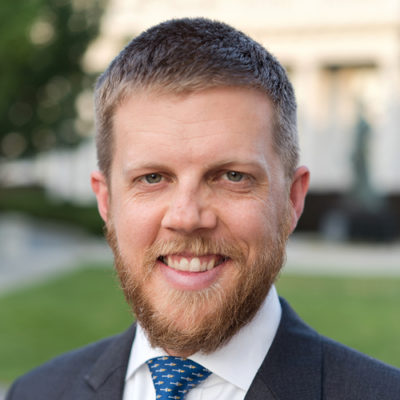 Connor Boyack is founder and president of Libertas Institute, a free-market think tank in Utah.
Connor Boyack is founder and president of Libertas Institute, a free-market think tank in Utah.
Named one of Utah’s most politically influential people by The Salt Lake Tribune, Connor’s leadership has led to dozens of legislative victories spanning a wide range of areas such as privacy, government transparency, property rights, drug policy, education, personal freedom, and more.
A public speaker and author of 21 books, Connor is best known for The Tuttle Twins books, a children’s series introducing young readers to economic, political, and civic principles.
Connor lives near Salt Lake City, Utah, with his wife and two homeschooled children.
Love the show? Subscribe, rate, review, and share!

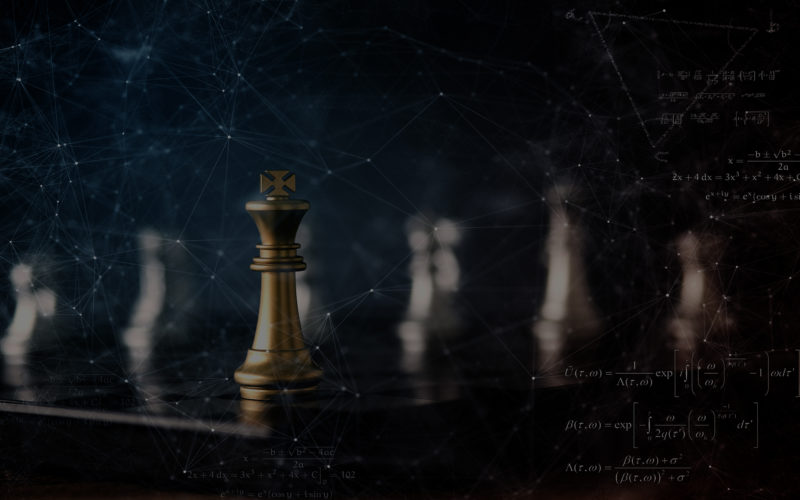
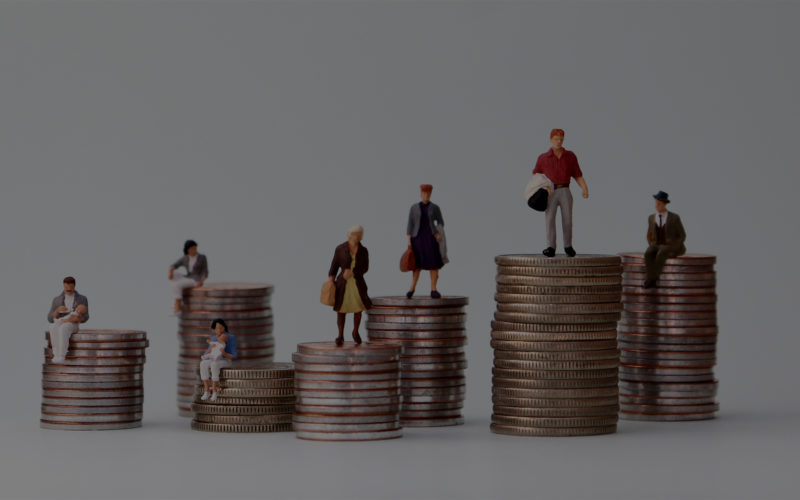
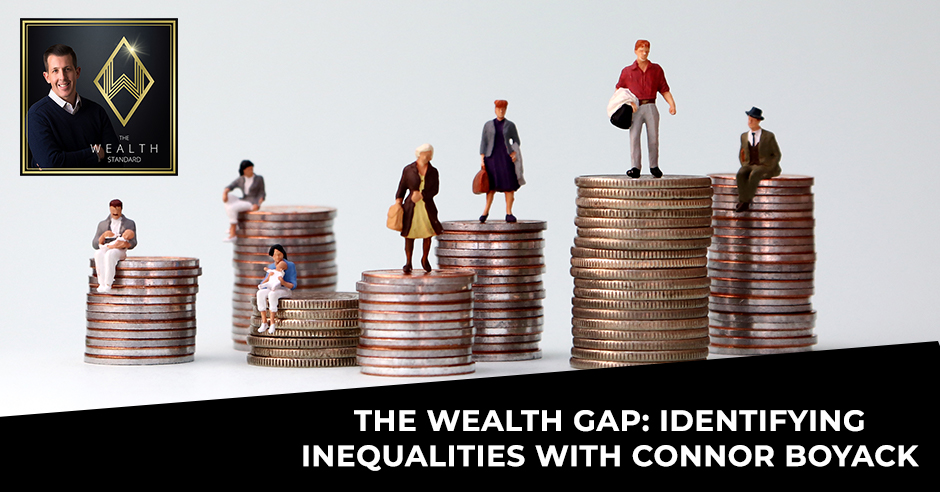

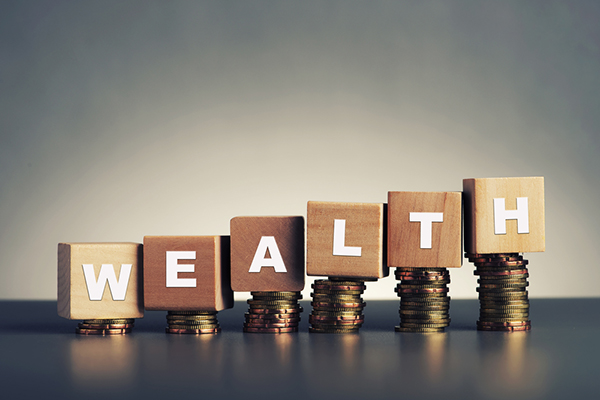
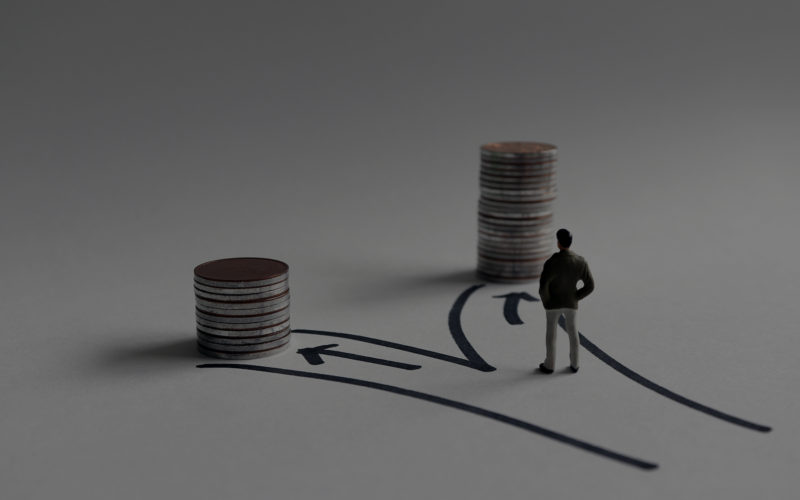
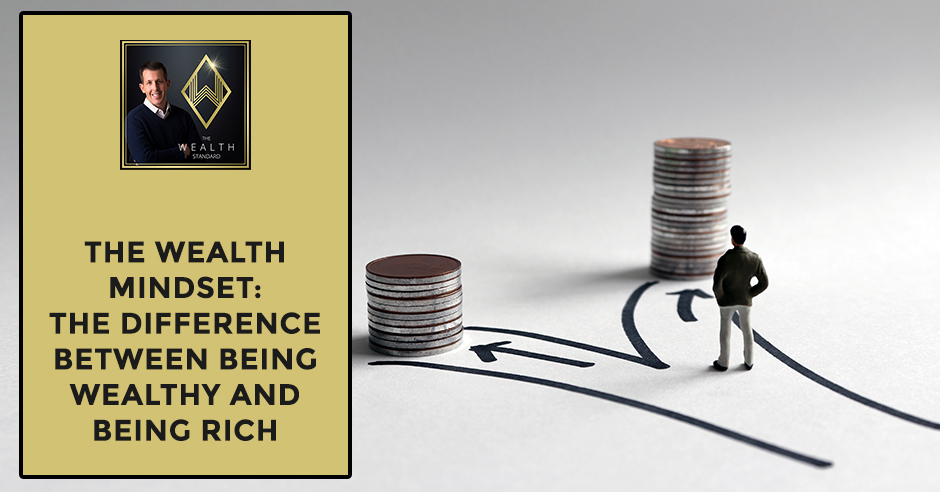

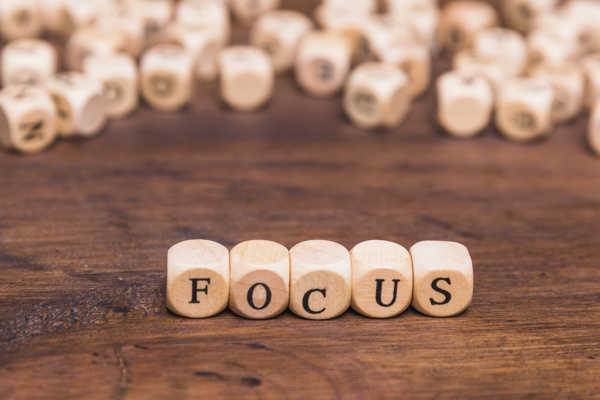

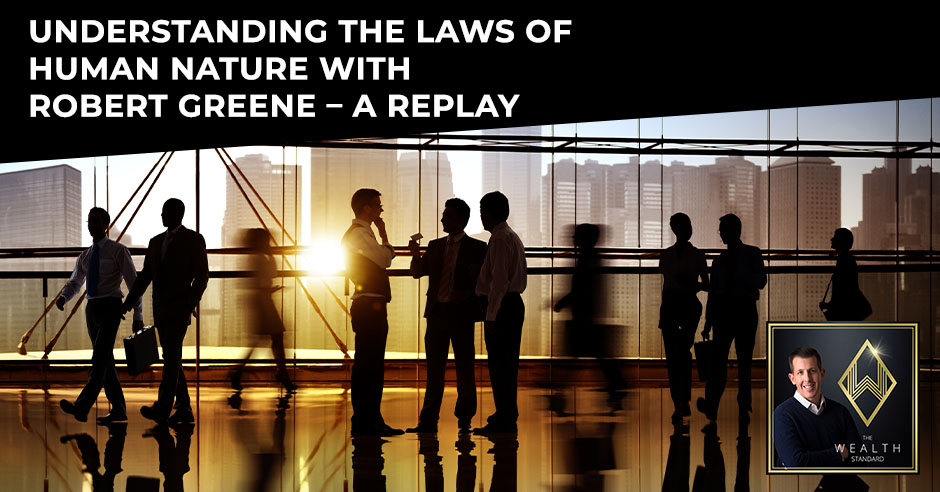

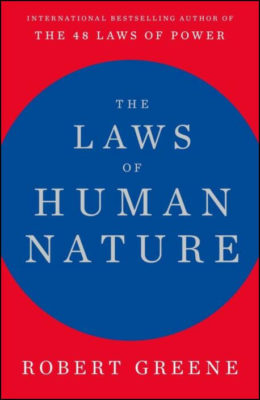

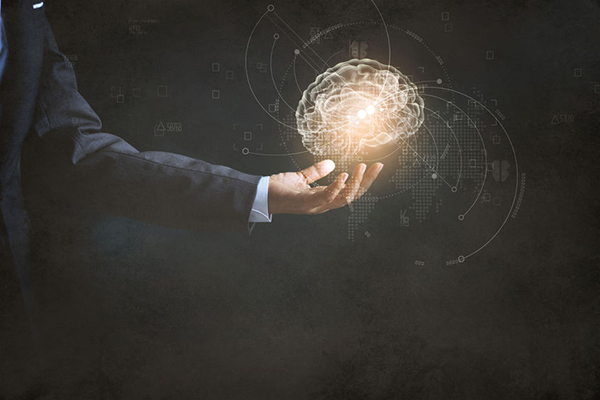

 Robert Greene is the author of the New York Times bestsellers The 48 Laws of Power, The Art of Seduction, The 33 Strategies of War, The 50th Law, and Mastery.
Robert Greene is the author of the New York Times bestsellers The 48 Laws of Power, The Art of Seduction, The 33 Strategies of War, The 50th Law, and Mastery.